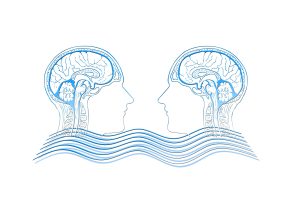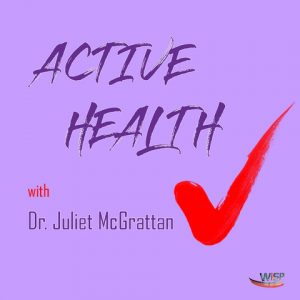As you know, I’m all about the easy health wins! Doing a small thing over and over until it becomes a habit and then adding another one. Eventually these small things add up to big changes. When you’re heading into the perimenopause, lots of changes are needed to help you keep well and healthy (physically and mentally) and to future proof your body. One simple thing you can do is to swallow a daily vitamin D tablet. I want to share why taking a vitamin D tablet every day is important, particularly for women in the peri and post menopause.
What does vitamin D do in the body?
You’ve probably heard that you need Vitamin D for healthy bones and this is true. Bone is constantly being made and broken down. Bone loss speeds up as you get older, especially around the time of the menopause. You can be at risk of developing osteoporosis where bones become thin and break easily. It’s crucial that your body has the building blocks it needs to make new bone. Calcium and phosphate are two crucial ingredients needed for good bone health. Vitamin D helps with the regulation of both of these and aids calcium absorption from the gut.
Vitamin D is also needed for healthy teeth, nerves and muscles. It does have other roles in the body too which shouldn’t be overlooked and are still being researched and discovered. There are many unknowns but these include supporting your immune system, reducing inflammation in the body, controlling cell growth and glucose metabolism.
Why do you need to take Vitamin D?
You can get vitamin D from your food but you can’t get enough. Here are some vitamin D rich foods:
- Fish including tuna, salmon, sardines, mackerel and fish liver oils
- Meat – beef liver
- Egg yolk
- Cheese
- Mushrooms (not all types)
- Foods that have been fortified with vitamin D such as milk and plant milk alternatives, juices, cereals and fat spreads
Most of your vitamin D is made in your skin. When ultraviolet light rays hit the skin it triggers vitamin D synthesis. The problem is, this needs to be direct sunlight onto bare skin and through the winter months we’re severely lacking in this in the Northern Hemisphere. And, in the summer we’re often covered in sunscreen. Also, if you cover your skin, for preference or cultural reasons, your UV light exposure is reduced.
This is why we need to take a vitamin D supplement daily from October to March and to consider taking one throughout the year. Runners might be outside more than the average person but if you work long hours indoors or do cover your skin, then a year round supplement might be a good idea. Public Health England advise people of African, African-Caribbean or south Asian backgrounds to take a vitamin supplement year round too because dark skin doesn’t make as much vitamin D.
Interestingly, whether it’s vitamin D from, sunlight, food or a supplement, it’s not immediately ready and active. It needs to travel to the liver and then the kidney to be fully active in the body.
How much vitamin D do you need to take?
You will find varying recommendations as to what dose you should take according to where you live and what you read. Public Health England advise 10micrograms (400 International Units IU) every day as the recommended dose for those over four years old. This is lower than many other countries. Most over the counter supplements in the UK contain 25micrograms (1000 IU) and these are fine to take.
Will you notice a difference if you take vitamin D?
It’s unlikely that you’re going to notice any direct benefit from taking a daily vitamin D supplement to be honest. That can make it hard to feel motivated to persevere. It’s more about knowing that your body needs it. If you are deficient in vitamin D and have symptoms linked to this then these should improve.
Do I need to have my vitamin D levels checked?
If you’re well and don’t have any symptoms then there’s no need to have your vitamin D levels checked. If you have symptoms of an unknown cause and are at risk of low vitamin D, then your doctor will arrange a blood test. These include problems like bone or muscle pains or weakness and bone fractures. Risk factors include having dark skin, those with vegan or vegetarian diets and conditions that affect gut absorption such as coeliac disease or inflammatory bowel disease. If you have liver or kidney disease too then you might be more at risk of low vitamin D because this is where the inactive form is activated. If a deficiency is found then you may be prescribed a higher dose of vitamin D initially to restore the levels.
Is vitamin D safe?
Of course it’s possible to have too much of a good thing. The NHS advise adults against taking more than 100micrograms (4000 IU) per day – the values are different for children. High doses could lead to high calcium in the blood which can cause heart, kidney and bone problems.
Is there anyone who can’t take vitamin D?
Yes, there are some situations where taking vitamin D supplements is not advised or could be harmful. Sometimes a lower dose is required. You should check with your pharmacist or doctor if you are taking medications or have an ongoing medical condition.
So, in summary, vitamin D has important roles in the body and is essential for our bone health, especially during and after the menopause when our bone mass is steadily declining. While it’s important to get daily sunlight so our body can make vitamin D, we should take a supplement through the winter months at least. Over the counter, simple, plain vitamin D supplements are inexpensive – you can just add them to your supermarket trolley. Taking one daily is a simple step we can all take to improve our health.
For other easy health wins for perimenopausal runners, sign up to my newsletter below.







